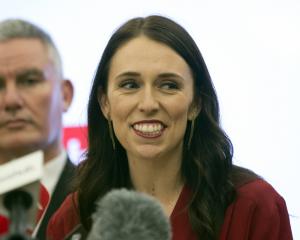Is someone who does not pay a fair share of tax a person of "good character''?
The Overseas Investment Office (OIO) approved
tax-haven law firm Mossack Fonseca clients Rafael and Federico Grozovsky (also convicted of serious pollution in Argentina) to buy land in Taranaki.
John Key and his personal lawyer think harbouring trusts here through which foreigners escape tax at home is good for us. It earns millions of dollars.
But beyond the dollars lies reputation. Small and with zero clout, New Zealand trades on a reputation for commercial and political cleanliness.
The Inland Revenue Department (IRD) bothered about that reputation in 2013 and proposed tightening the law: it reported international ‘‘criticism, including claims that New Zealand is now a tax haven in respect of trusts''.
Mr Key's lawyer got an inside track to the Revenue Minister and IRD was stopped in its tracks.
That was good for Mr Key's lawyer's business. Not good for the country's reputation.
Also not good for that reputation was confirmation last week that Ukrainian and Russian greenhouse gas emissions credits, mainstay of the emissions trading scheme, are ‘‘hot air''.
That is, like tax evaders, they are fraudulent.
Paula Bennett initially arrogantly dismissed that research, then at the weekend said climate change ‘‘is actually about our identity and us as a country'' - that is, our reputation.
The tourism sector, too, bothered last week about reputation: poor water quality is a risk to its primary drawcard for foreign customers, our landscape. It complained that only some of the Land and Water Forum's recommendations have been acted on.
Mr Key's conduct on such issues is instructive.
He initially dismissed the Panama papers' exposure of this country as a nice place for dubious sorts to do business as irrelevant because of a 2013 Organisation for Economic Co-operation and Development ‘‘clean bill of health''.
When, oops, that didn't work - not least because of his career at Merrill Lynch, a player in the shenanigans that led to the global financial crisis (GFC) - he got his accounts examined and, it appears, a clean bill.
Then he got John Shewan to conduct an inquiry with relatively narrow terms of reference.
Then came the Taranaki purchase. Mr Key said the link to Mossack Fonseca was ‘‘irrelevant''.
The Grozovskys had not been found to be not of good character. Oops. Well, the OIO could force them to sell and the OIO was being ‘‘beefed up''.
Put that with the ‘‘jihadi brides'' scare he pumped up, using (misusing?) briefings by Security Intelligence Service director Rebecca Kitteridge.
Turned out they all went from Australia. That is, there was no evidence of radicalisation here and so no basis for winding up fear.
Then suddenly on April 17, Mr Key floated a possible land tax on foreigners buying houses.
Remember (1) the cabinet rejected a land tax in 2010 when the tax working group considered it; (2) National said before the 2014 election there would be no new taxes (then suddenly in the 2015 budget slapped a capital gains tax on quick re-sales of houses); and (3) last year Mr Key scoffed at Labour suggestions that foreign buyers were a distorting factor in Auckland's wild market.
How come Mr Key's switch? He said governments have to respond to events, regardless of election promises. People understand. (As they would over the pension age, but that is another matter.)
Mr Key in effect was saying that an election is a mandate to govern, not for individual commitments.
That is the exact opposite of his claim that his 2011 election mandate included the specific of selling down state-owned enterprises even though there were two-thirds majorities against selldowns.
If there is a land tax in the budget, National will have legitimised for future Labour-led cabinets both tax on income from capital gains and tax on wealth.
These are major changes of tax principle.
But Mr Key is a politician of presentation, not principle. He is good at it: mud doesn't stick.
An example: Mr Key blunts the bad news of young people not affording spiral-priced houses by shining a rosy spotlight on those made wealthier by rising prices of houses bought a while back and gifted with more post-mortgage income because interest rates are very low.
The flipside is debt. Westpac economists calculate that the household debt-to-disposable-income ratio is back above its frighteningly high pre-GFC levels.
The higher that debt, the less the debtors have to spend to keep the economy buzzing.
That poses a challenge for Bill English, whose cabinet mandate is to maximise gross domestic product (GDP) growth. (On Friday the Economist pronounced GDP deeply flawed as a measure of material wellbeing, a topic explored here in the past, but Mr English sticks with GDP as his measure.)
Nevertheless, on Budget day Mr Key will assure us the economy is just fine. And, as with the Panama papers, climate policy, housing and much else, most will think that plausible. One day it won't be. Meantime, on to the next Key show.
●Colin James is a leading social and political commentator.












